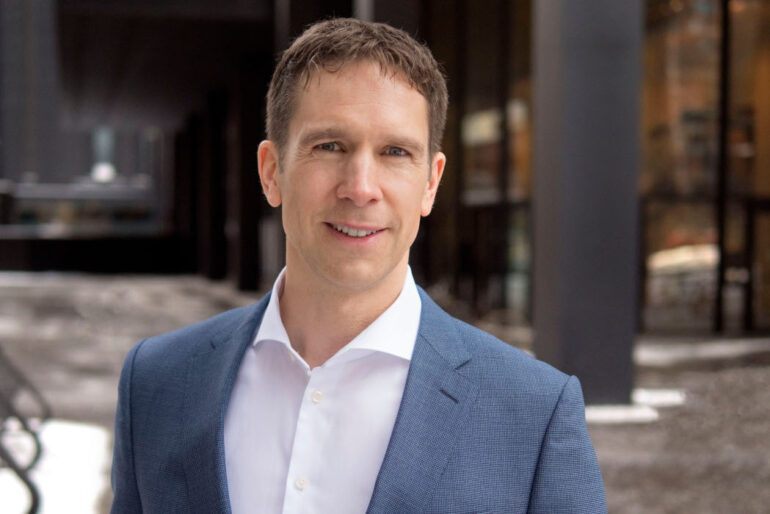Tomi Poutanen has co-founded some of Canada’s most notable artificial intelligence (AI) organizations, from early-stage VC firm Radical Ventures to the Vector Institute research hub, and prediction engine company Layer 6.
When Layer 6 was sold to TD Bank in 2018 in a reported $100 million USD deal, Poutanen became the bank’s chief AI officer, and helped apply Layer 6’s AI engine at TD to a number of different financial services-related use-cases.
“When it comes to AI healthcare, we didn’t need a new AI breakthrough to create value here. I think we just needed to approach the problem differently.”
With Toronto-based Signal 1, which launched last year, Poutanen has set his sights on applying the same technology to another regulated industry with sensitive data—healthcare. To do that, the Signal 1 co-founder and CEO teamed up with economist Mara Lederman and health data scientist Muhammad Mamdani, and the company recently launched its first customer site deployment with Kitchener-Waterloo’s Grand River Hospital.
As Canada’s healthcare system contends with capacity shortages coming out of COVID-19, the Canadian AI leader sees room to help clinicians operate more efficiently by applying AI to patient data. Signal 1’s AI platform aims to improve patient flow by tapping into and analyzing existing health data sources to assess and predict patient risk levels.
As Poutanen told BetaKit in an interview, this data is currently underutilized, in large part due to the difficulty associated with making it accessible and actionable. “We’re uniquely experienced on that front,” he added.
Since its April 2022 launch with $12.7 million CAD in seed funding from Inovia Capital, TD, Geoffrey Hinton, and Radical Ventures, among others, Signal 1 has been heads down working on its platform, which the startup began deploying at St. Michael’s Hospital in September. “We’ve been in this intense period of building and this is our first time publicly talking about what we’ve built,” said Poutanen.
Following months of collaboration, Signal 1 launched its solution with Grand River Hospital this week as part of a CAN Health Network-supported proof-of-concept that could lead to its tech being used by other hospitals connected to the medtech-focused national partnership.
According to Grand River Hospital president and CEO Ron Gagnon, “what the health care system needs right now is real innovation and novel solutions.” For his part, the CEO thinks Signal 1’s tech could have a positive influence on the Kitchener-Waterloo facility’s operations.
“We are proud to be joining forces with Signal 1, to trial this solution,” Gagnon added. “We strongly support new innovations in health care and believe that this work will lead to better patient outcomes and a better experience for patients and staff.”
As Poutanen put, Signal 1 was initially created with the thesis that, “to really make an impact in AI in healthcare, you needed both a team that will have a strong partnership on the clinical side and had mad technology chops.”
From its partnerships with Unity Health to TD agreeing to license its AI engine for the company’s use, the CEO argued Signal 1 has been well-positioned to succeed from the get-go. “That thesis was largely played out and has been incredibly helpful for us in building AI solutions that can scale,” said Poutanen.
At Grand River Hospital, Signal 1’s solution will help organize the facility’s efforts surrounding when and how to discharge patients by securely tapping into anonymized data contained in its electronic medical records system, analyzing it, and sending it back to clinicians in a digestible format.
RELATED: Radical Ventures raising new $550 million USD AI fund as sector heats up
Developed in response to what Signal 1 has been hearing from hospitals today, the company’s tech will focus specifically on reducing the average length of hospital stays at Grand River Hospital, toward the goal of creating more capacity.
As Poutanen put it, Canada’s healthcare system “has been underfunded against a backdrop of an aging, growing population.”
“This whole situation has been vastly exasperated by COVID-related effects,” the CEO added, noting that there is “no easy solution” to some of the resulting issues on the staffing and facilitiates front given that training more people and building new buildings takes time.
Poutanen believes that making use of underutilized patient data, with the help of “very tried and true AI,” could help alleviate some of the stress on the system. Starting with Grand River Hospital, Signal 1 hopes to prove just that.
“When it comes to AI healthcare, we didn’t need a new AI breakthrough to create value here,” said Poutanen. “I think we just needed to approach the problem differently. And, frankly, we needed a crisis to spur the adoption of AI.”
Feature image courtesy Signal 1.


